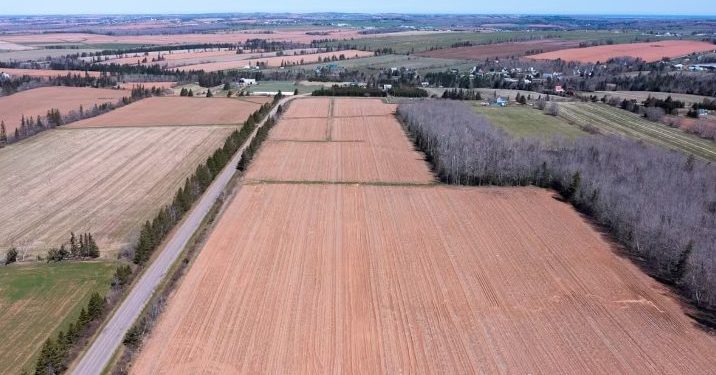#PotatoProduction, #SustainableFarming, #CoverCrops, #SoilHealth, #WaterRetention, #EnvironmentalImpact, #Crop
The PEI Potato Board has taken a significant step towards optimizing potato production by doubling the acreage dedicated to cover crops. This strategic move aims to enhance soil health, improve water retention, and reduce the need for chemical inputs, ultimately benefiting both potato growers and the environment. Learn more about the development and consequences of this initiative.
In an effort to promote sustainable farming practices and enhance the overall productivity of potato cultivation, the PEI Potato Board has implemented a major expansion of cover crop acreage on Prince Edward Island, Canada. By doubling the area dedicated to cover crops, the board aims to reap several benefits that positively impact the entire potato farming ecosystem.
Cover crops are non-commercial plants grown primarily to protect and improve the soil between regular crop cycles. They help minimize soil erosion, increase organic matter content, and suppress weed growth. By increasing the acreage dedicated to cover crops, the PEI Potato Board aims to improve soil health, ensuring a fertile and robust foundation for potato cultivation.
One of the primary advantages of cover crops is their ability to prevent nutrient leaching and improve water retention in the soil. This development is especially crucial in Prince Edward Island, where water resources are essential for agriculture. By maximizing water availability in the soil, the expanded cover crop acreage can help mitigate the impact of drought conditions, reducing the reliance on irrigation and conserving valuable water resources.
Furthermore, cover crops act as a natural barrier against pests and diseases. They can help suppress weeds, reducing the need for chemical herbicides and minimizing the potential environmental impact associated with their use. By reducing chemical inputs, the PEI Potato Board aims to enhance the sustainability and ecological balance of potato farming on the island.
The decision to double the acreage for cover crops by the PEI Potato Board has several positive consequences for potato production on Prince Edward Island. By investing in soil health and water retention, potato growers can expect improved crop yields and overall quality. Healthy soil enriched by cover crops promotes root development, nutrient uptake, and resistance to diseases, resulting in healthier and more productive potato plants.
In addition to direct benefits for potato farmers, this strategic move by the PEI Potato Board has broader positive implications for the environment and local ecosystems. By reducing the use of chemical inputs, such as herbicides, the initiative helps mitigate potential environmental contamination. The expansion of cover crop acreage can contribute to biodiversity conservation by providing habitats for beneficial insects, pollinators, and other wildlife.
Moreover, the adoption of sustainable farming practices, as exemplified by the expansion of cover crops, can enhance the reputation of Prince Edward Island potatoes in the marketplace. Consumers are increasingly seeking out environmentally-friendly and responsibly-produced food. By prioritizing sustainable agriculture, the PEI Potato Board not only ensures the long-term viability of the potato industry on the island but also meets the growing demand for ethically produced food products.
The PEI Potato Board’s decision to double the acreage for cover crops marks a significant development in optimizing potato production on Prince Edward Island. By prioritizing soil health, water retention, and reducing chemical inputs, this initiative has far-reaching consequences for potato growers, the environment, and the reputation of PEI potatoes. The expanded cover crop acreage sets the stage for a more sustainable and resilient potato farming industry, ensuring a brighter future for both producers and consumers.







